Lord of Vermilion III Original Soundtrack
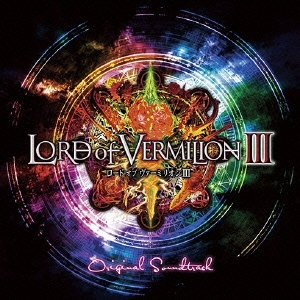 |
Album Title: Lord of Vermilion III Original Soundtrack |
| Record Label: Square Enix |
|
| Catalog No.: SQEX-10447 |
|
| Release Date: September 14, 2014 |
|
| Purchase: Buy at CDJapan |
Overview
For the third entry in their long-running arcade card battling series, Square Enix looked outside their normal roster of composers in favour of an outsider. They hired Tachytelic, a music artist associated with (and possibly a synonym of) M-Flo’s Taku Takahashi. This approach worked well with Revo on Bravely Default and Hyadain on Million Arthur, which appealed to game music fans and the artist’s followers alike. Does the same pay off with Lord of Vermilion III? In this author’s opinion, absolutely not…
Body
The soundtrack opens on a disappointing note with an electronic remix of Nobuo Uematsu’s main theme for the series. We’ve heard the theme adapted in all sorts over the years, from rock anthems (Lord of Vermilion) to orchestral overtures (Lord of Vermillion II) and everything inbetween (Lord of Arcana). Tachytelic nevertheless manages to offer a fresh take on the theme by focusing on dubstep elements. The artist creates an impressive arc for this remix by blending familiar melodies with new elements, for example the entirely original section at 1:56. What’s more, the track is impressively sampled and mixed, with the elements coming together to create what superficially sounds like an epic electro-orchestral soundscape. But the problem is that ever single one of those elements is unbelievably clichéd: the vocoder parts sound like they were recorded at your local club, the exotic sopranos wails are a shallow imitation of Gladiator, and the bass modulations are as trashy as they come.
Moving into the stage themes, Tachytelic continues the approach of the opening theme: mixing orchestral writing with dubstep elements. And unfortunately, the same problems continually arise. Take “Red String Break”, for instance. As the name suggests, it features a violin motif at its core that is relatively rich in phrasing and sampling. Unfortunately, it is repeated ad nauseum throughout the song’s three minute playtime. Tachytelic instead creates variation by varying the accompaniment, shifting between ethereal trance sections to intense dubstep climaxes, each as thoughtless as the other. The artist attempted to channel Clint Mansell’s cinematic approaches in “Over the Pride”, but instead simply muddled together a few by-the-numbers crisis motifs right up to the shoddy conclusion. “Tentacle Dread Hot Beat” brings together bad dubstep and bad crisis orchestration into one hot mess, while “Rhythm Fang, Over Sword” puts most of its attention into plain old repetitive, generic techno beats.
The best thing that can be said about the music, other than its polished production values, is that it propels forward the in-game action. With its driving electronic bass and rising brass fanfares, “Elder Tower” emphasises that feeling of pushing to victory. Generic as they are, those crisis motifs of “Over the Pride” create the feel of an intense battle and the Indian elements of “Jungoole Moomba” likely fit the location. However, even in context, the blaring, repetitious nature of Tachytelic’s score is likely to tire gamers quickly. Of special mention, “Screaming Doo Doo!” and “Over the Pride” also lose points for their f-bombs before their breakdowns. I’ve been known to enjoy my fair share of cursing in video game scores (see: MadWorld), I don’t think there’s anything remotely impressive about vocoders randomly showing up just to drop f-bombs. Instead, it’s just another example of the shallow, misguided tactics that Tachytelic used to try to make the soundtrack sound cool and mainstream.
The soundtrack closes with six orchestral compositions used during the game’s event scenes. “Another Space” and “Truth” are welcome for the simple fact that they bring the decibel levels down, but both are too dull and shallow to leave any greater impression. “Nostalgia” uses the familiar soft strings and keyboard approach to convey tenderness, but is far too repetitious and contrived to ever leave an impression. Then there’s “Bravery”, one of the most repetitive and imbalanced orchestral tracks I have ever heard; through his idiosyncratic combination of string samples and cymbal crashes, Tachytelic makes the orchestration sound heavy-handed yet thin all the same time. “Victorious Troops” is even an even bigger shocker. Also rounding off the soundtrack is the final stage theme “Code: Vermilion II”, a note-by-note reprise of the opening track that this time skips the ululations and going straight to the dubstep.
Summary
Artistically, the Lord of Vermilion III soundtrack is a colossal failure. It is nothing but a mash-up of orchestral crisis motifs and techno beats of the most generic, repetitive kind, with the odd vocoder or ululation thrown in. The soundtrack sounds blaring and superficial in context. On a stand-alone basis, it is practically unlistenable. The production values are impressive, with clear samples, vibrant mixes, and excellent mastering, but they don’t rescue the music from its banality. Perhaps reflecting Tachytelic’s pop background, this music is all show, no substance.
Do you agree with the review and score? Let us know in the comments below!
1.5
Posted on November 27, 2015 by Chris Greening. Last modified on November 21, 2015.

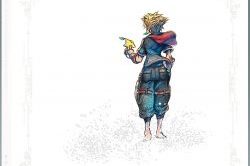
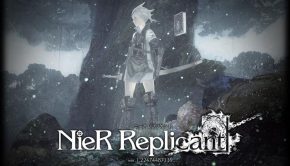
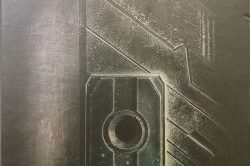
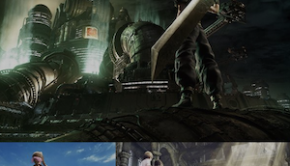










Thank you VERY much for willing to upload all three Vermilion OST reviews, it’s greatly appreciated, sir!
Hmm…I wonder if there will be an OST release for LOV ARENA…time will only tell, my friend? 😉
*Is going to put something random here* lol
Most hyped Game for 2016……Zelda Wii U…LMFAO!!! 😉
Thanks Jacob! I think there’s a good chance that the LOV Arena soundtrack will get released. SQEX have released much more random things lately!